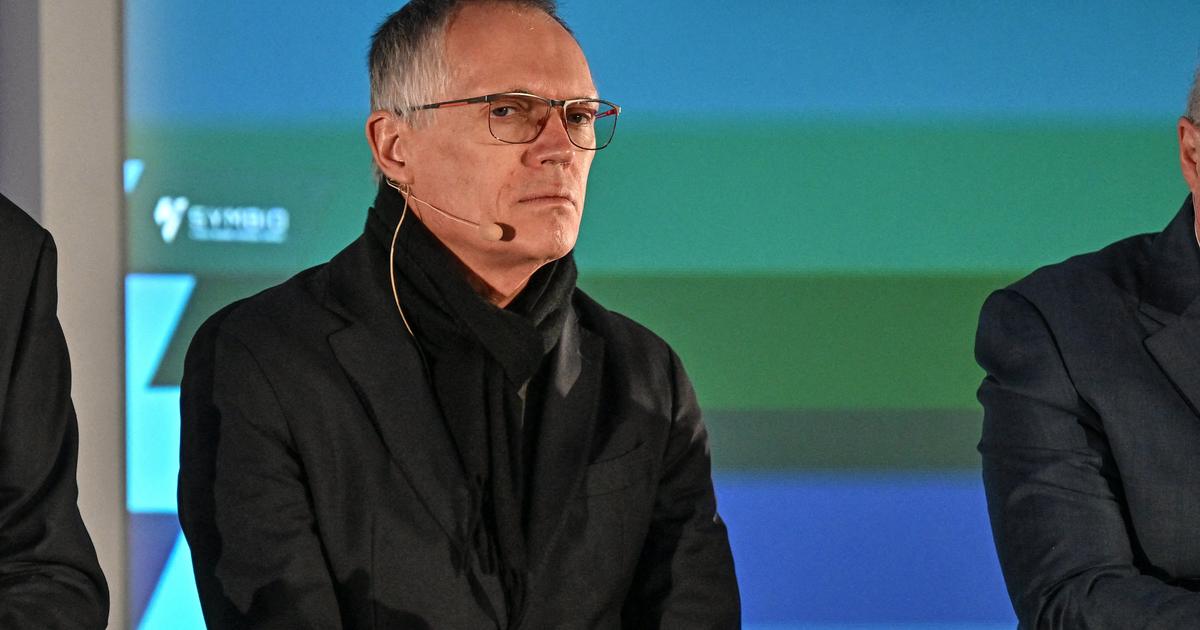It is a generation punished by two serious crises, that has grown up with the digital boom, hyperconnected, with a high environmental awareness, that seeks a rebalancing between professional career and personal life and whose financial concern is increasing as they see pensions of his parents as a chimera.
They are the millennials.
Its impact on the economy is already being felt and will be even more evident in the coming years, when its demographic weight will be greater.
Companies already know that they must readapt their policies to be on the same wavelength as this group called to transform the world.
As the years go by, millennials conquer more space in the labor market.
Those born between 1981 and 1996, who are between 26 and 41 years old, currently represent around a third of the active population in Spain, according to data from the active population survey (EPA).
A proportion that will continue to grow with the progressive retirement of
baby boomers
and those belonging to generation X. So much so that in 2030 they will become the main workforce.
The moment of truth has arrived for a group of people who “have not stopped beating themselves against the wall”, in the words of Pedro Rey, professor of behavioral economics at Esade.
And it is that for many members of this generation uncertainty has become their life companion.
After experiencing the frustration of getting a job in the middle of the Great Recession, the crisis caused by the pandemic gave them the final touch.
66% claim to have seen their income reduce as a result of the health emergency, according to the study The generational impact of the coronavirus, by the 40dB research agency.
And faced with the escalation of prices, which has prompted them to rethink some of their priorities, this generation has peeked into a world they did not know.
As they struggle with financial stress, many are turning to more sustainable consumption habits.
Caring for the environment remains at the top of their concerns, says Bárbara Calderón, head of Marketing Intelligence at BBVA.
"They are anxious to be an active part of the change that society must bring about and they expect their companies to help them change their behavior to move towards a greener and more inclusive world," she adds.
The adaptation of spaces, through the implementation of recycling bins, bike parking and solar panels, gains strength among the demands of this generation.
But aside from a commitment to sustainability, millennials are looking for something more from the companies they serve:
Millennials have started from a very young age to live life through screens.
When Apple released its first iPhone in 2007, the oldest were just 25 years old.
It is not trivial that this generation spends an average of almost seven hours connected each day, according to a study by the market research platform GWI.
Most of that time is eaten up by social media—about two and a half hours a day—with Facebook, YouTube, and Instagram standing out as their favorite platforms.
Some tools that for Ana Gil (31 years old) have a double face.
“There are accounts that spread valuable advice on sustainability and food issues.
But the excess of information sometimes overwhelms and you have to know who you are following, ”she points out.
It is precisely the digital natives who suffer the highest levels of anxiety due to hyperconnectivity.
The report by Sodexo Generational Mix in Spanish companies concludes that three out of every ten millennials feel very or quite stressed by the immediacy of the online services they use daily and that has led them into a spiral of short-termism.
“You are always comparing yourself to others and you end up thinking that you are behind in life,” confesses Kevin Vásquez (26 years old),
The irruption of digital media has its share of responsibility in the increase in digital stress, by opening the door to changes in consumption in the reception of news.
“Twenty years ago, users could, at best, read the newspaper in the morning, watch the news in three time slots during the day, and listen to the radio once an hour.
Instead, now information circulates at every moment of the day and consumers are called every second to understand what is happening in the world and to give their opinion about it”, says Javier Vello, from EY Transforma.
Does technology have a remedy?
The most effective cure is self-regulation, warns Mila Pérez, professor at Deusto Business School: “Users must understand what their priorities are and value moments of rest.
Organizations, both companies and universities, are launching more and more wellness and mindfulness programs to help all those who cannot control digital anxiety”.
Inflation is changing the buying habits of many millennials.Andrea Comas
Adapt or die
Given the greater presence of digital natives in their workforces, companies face the challenge of not being left behind in the management of virtual tools.
Following in the wake of the digital transformation driven by the pandemic, they are trying to make it easier to carry out any online management, emphasizes Cristina Hebrero, head of People & Change at KPMG.
“The request for vacations, sick leave or a change of computer are some of the services already available in many firms.
But there are still improvement challenges ahead”, she admits.
The scant digitization of his previous company was one of the main reasons why Omar Cornejo (35 years old), a human resources technician, changed jobs last month.
All interviews had to be face-to-face except during the peak of the pandemic.
“It was a very archaic process that made me lose too many candidates.
It's much easier for people to connect to a computer from anywhere,” he says.
In fact, the adaptation of communication channels within the firm itself is another way to engage the new generations.
This strategy goes through two key points: betting on the media where young workers spend more time —such as applications, employee portals and social networks— and streamline mail management, suggests Pérez.
The affinity of millennials for the digital world has prompted several multinationals to take an interest in the metaverse.
Fashion brands like Adidas, H&M and Zara have already positioned themselves in this shared virtual space, in which people are represented by their digital avatars.
Javier Vello considers that this interactive world especially captivates the younger generations (the millennial and the Z).
“You can go to school, university or work and then come home and spend time together playing Fortnite in virtual reality,” he says.
A study by Credit Suisse on the economic megatrends of the future warns that no company can build the metaverse on its own.
All will have to join forces to contribute to its creation.
“Imagine that someone wants to make a virtual visit in a clinic and in their digital wallet they can have access to all the tests that they previously did.
The companies will have to coordinate with each other so that these virtual realities do not become very closed nuclei where it will be very difficult for the consumer to enter”, argues Vello.
For Kevin Vásquez (26 years old), showers of 10 or 15 minutes are already a distant memory.
“I try to keep them no longer than five and use cold water, especially in the summer,” he says.
When it comes to shopping, Gil cannot separate himself from his reusable bags and in the kitchen of his apartment in Madrid there is no trace of plastic bottles.
“I have to remember to grab my eco bag before I go to the supermarket and I've done a lot of research to find out where to buy the most environmentally friendly soaps,” he confesses.
According to a Deloitte report, seven out of ten Spanish millennials believe that the world has reached its turning point in terms of the response to the climate emergency.
And nine of them try to minimize their environmental impact.
But what are the actions that stand out in your green agenda?
Use products with less packaging, reduce water and energy consumption in the home, and avoid food waste, according to Kantar's Sustainability Sector Index 2021 study.
Respect for the environment is also reflected in its predisposition towards the use of shared mobility services, such as car sharing.
Although 69% of millennials still own a car, 33% prefer to take a taxi or rent a car, according to GWI data.
Vásquez has lived between Madrid and Rome for the last five years, and describes owning a car as an unnecessary expense: "It's too expensive and I've gotten used to getting around by public transport, which is more comfortable in big cities."
different mentalities
Vello agrees on this, emphasizing the different mentalities between generations.
“For a person born in the seventies, having their own car was a sign of freedom because it allowed them to move wherever they wanted.
On the other hand, for a millennial today it is a slavery, because what he wants is to use it when he really needs it.
90% of the time it will be parked, so it doesn't add any value to it,” he explains.
Brands, aware of this trend, are changing their business model to redefine their marketing strategy.
"BMW is no longer defined only as a car manufacturer, but as a provider of mobility services," says Diego Vizcaíno, managing partner of applied economics at AFI.
However, the values millennials believe in often contradict their behaviors.
Although they shout loudly against climate change, they continue to maintain unsustainable consumption habits.
“When placing an order online, the important thing is that they receive it in the shortest possible time, and if the size does not fit them or the color they do not like, they do not hesitate to return it because it is free.
They don't know the pollution involved in putting a product on a marketplace: 70% of what is sold on a Black Friday is returned”, warns May López, director of EAE's MBA in Sustainability.
"They lack more courage when claiming their purposes," adds Carlos González, professor of the Master's Degree in People Management and Organizational Development at ESIC.
For its part, the spirit of sustainability that millennials share is subjugated to their financial capabilities.
“An electric car is still more expensive than a combustion car.
Perhaps, many would like to follow this trend, but their pockets do not allow it”, emphasizes Vello.
The high prices of sustainable products force Gil to make efforts in planning his menu.
“Free-range eggs, number 0, are much more expensive than number 3. Instead of buying a dozen, I can afford to buy only half.
It is what it is,” he says.
This is not the only change that Gil has brought to his shopping list.
Faced with high prices for watermelon and cherries, he has had to learn to control his cravings.
Giving up his favorite fruit has almost become a habit.
In the last year, Vásquez has also turned his shopping basket upside down.
Red meat and eggs have given way to lentils, chickpeas, beans and tofu.
"But this only when he's in promotion," he jokes.
The concerns of millennials grow when the escalation of prices knocks on the door of their house.
One in three points to the increase in the cost of living as their main concern, even above climate change and unemployment, according to the Deloitte study.
47% live from day to day and fear that they will not be able to cover all their expenses.
The clouds do not disappear even in a long-term scenario: 31% believe that they will not be able to retire with some economic comfort.
Although inflation takes its toll on their purchasing power, millennials have a less internalized culture of saving than previous generations, warns Rey.
“The increase in prices has led them to worry more about saving, but if the forecasts about the dark future are getting longer and longer, there comes a point where they prefer to live day to day and consume.
They are two forces that go in opposite directions and it is not clear which pulls more”, details the Esade professor.
In recent weeks, Cornejo has reduced his leisure spending.
“You go out to eat and you realize that with what you paid you could have bought a mid-week supermarket,” he says.
However, there are pleasures that he is not willing to give up, such as letting off steam at the gym and going out to dinner with his partner once a week.
And how do millennials behave when they invest in the Stock Market?
They do not hide their predisposition to risk.
But they are also proactive in planning their finances.
This is the conclusion of a Natixis bank survey in which 2,500 private investors between 25 and 40 years old participated.
Those interviewed spend an average of 17% of their income to invest for retirement and 59% of them have a professional financial advisor.
According to Dave Goodsell, director of the Natixis IM Center for Investor Insight, this is a generation that has enjoyed a long bull market with low interest rates and low inflation for much of their adult lives.
“After experiencing a severe financial crisis that destroyed the savings of many of their parents' generation, they have known what it is to suffer losses.
Seeing how the risks increase and their finances become more and more complex, they want to protect their interests”, he points out.
Flexibility
The option of telecommuting one day a week is one of the advantages that Cornejo most values in his new position.
“The fact that I can eat at my house and avoid having to travel is priceless,” he admits.
Remote work is a relief for one's well-being, by eliminating commuting problems that cause stress from early in the morning.
And also for the pocket.
But the biggest savings are not in fuel, but in time.
An Ideagenia study finds that Madrid workers travel the equivalent of 12 full days a year to go to the office every day.
However, telecommuting does not suit everyone's needs.
Gil, a biology teacher at an institute in the capital, remembers the times of confinement like a nightmare.
“Organizing yourself is almost impossible and the exams are very complicated to do remotely.
Everything is twice the work,” she confesses.
Of course, with the data in hand, it seems that most millennials are convinced by this modality.
75% prefer to choose between carrying out their activity from home or in person.
“They don't want to be in the office or at the university all day.
They seek flexibility and are inclined towards projects that foresee objectives, not face-to-face”, explains Vizcaíno.
However, the reality is different.
Only 45% claim to have the option to choose, warns the Deloitte report.
Eurostat figures guarantee that, even in the toughest times of the pandemic, Spain lagged behind in this matter.
10.9% of employees between the ages of 25 and 64 teleworked in Spain in 2020. A figure below the EU average (12.3%) and neighboring countries, such as France (15.7 %), Germany (14.8%) and Italy (12.2%).
If companies want to retain talent, promoting more flexible work arrangements is no longer optional.
From “live to work” to “work to live”
Times haven't changed that much.
Compensation continues to be the aspect that millennials value most when applying for a job.
Even so, other benefits come into your sights.
The extra days of vacations occupy the first place of the advantages most appreciated by this generation beyond salary, according to the Sodexo study.
“It is the first generation that wants to change the concept of 'live to work' for that of 'work to live', which is why they have a greater preference for free time and the reconciliation of professional and personal life,” says Miriam Martín, director of Marketing and Communication of the company.
Bonuses for productivity and medical insurance are also placed on the podium of their preferences.
The latter, although a benefit traditionally associated with older generations, reflects millennials' concern for physical and mental well-being.
“After the pandemic, everything related to medicine has increased in importance in the face of greater concern about the black future,” says Rey.
In an environment where changes are occurring faster and faster, this generation strongly calls for constant training.
In many cases, the presence of an exciting project that allows you to learn something new can be a differential element.
“Even those who enter the company of their dreams ask to grow throughout their career.
They need to be valued by their own bosses and obtain a form of recognition that goes beyond financial remuneration.
They want to lead the organizations,” says Pérez.
On the contrary, a benefit that arouses less interest as the generations advance is the company car.
An option that companies offer their employees less and less, weighs up Martín.
And, according to Rey, a status within the company that has lost importance.
“If you don't go to the office as often and see less of your colleagues, you don't need to signal that you're someone important in the firm,” he concludes.
50% off
Subscribe to continue reading
read without limits
Keep reading
I'm already a subscriber







/cloudfront-eu-central-1.images.arcpublishing.com/prisa/DIAGMBIFCBFTJADD5SB7GXXY2A.jpg)


/cloudfront-eu-central-1.images.arcpublishing.com/prisa/7FWSL2MJ4FD5TOM366ZNU2RLTU.jpg)

